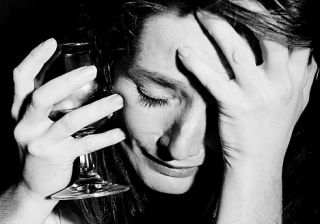
The self-medication model portrays addictive behaviors as attempts to diminish the feelings of anxiety, loss, shame, and loneliness left in trauma’s wake. For me, this connection is too obvious for words. I was lonely, depressed, and constantly on the lookout for personal attacks while at boarding school as a teenager. Within a year of leaving, I had shot enough heroin to end up unconscious in a bathtub, appearing to my friends to be dead. I don’t for a moment doubt the connection between these episodes of my life. And I say that, not as a scientist, but as a regular person, trying to make sense of it all.
I recently spoke with a reader who has serious problems with alcohol, but only when things go wrong in her personal life. Eleven months of the year she has no craving, no attraction to alcohol. She doesn’t even have to be on guard because there’s no urge to get drunk. However, when her (now, thankfully, ex) husband became abusive, and later threatened to block her custody of her son … that’s when she drank to excess. How can you be an “addict” only when things get tough, and then become a non-addict when life goes back to normal? The disease model simply can’t explain that sort of pattern, whereas the self-medication model predicts it. Threat and anxiety lead her to take alcohol to soothe the hurt.
To read the full article, please click here.

